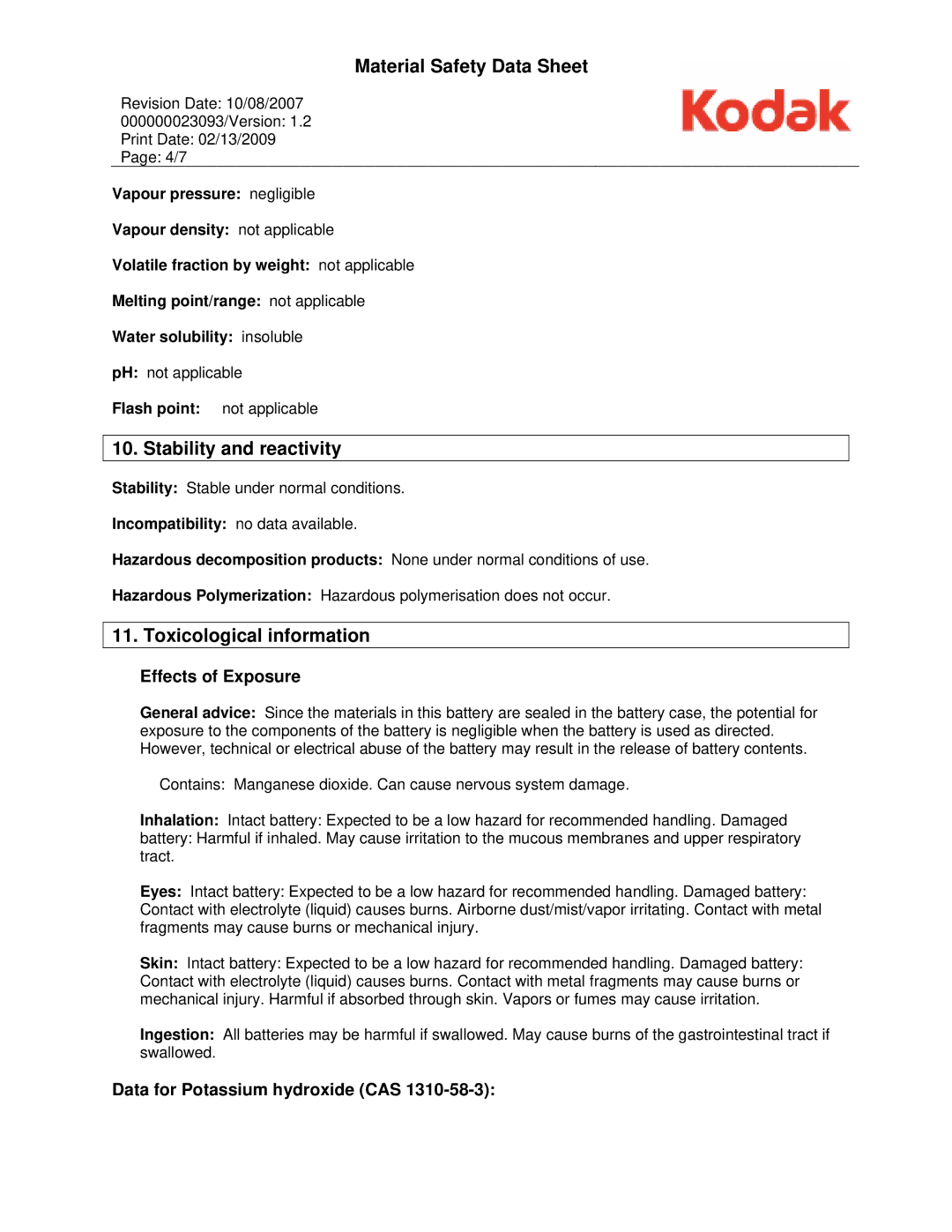
Material Safety Data Sheet
Revision Date: 10/08/2007
000000023093/Version: 1.2
Print Date: 02/13/2009
Page: 4/7
Vapour pressure: negligible
Vapour density: not applicable
Volatile fraction by weight: not applicable
Melting point/range: not applicable
Water solubility: insoluble
pH: not applicable
Flash point: not applicable
10. Stability and reactivity
Stability: Stable under normal conditions.
Incompatibility: no data available.
Hazardous decomposition products: None under normal conditions of use.
Hazardous Polymerization: Hazardous polymerisation does not occur.
11. Toxicological information
Effects of Exposure
General advice: Since the materials in this battery are sealed in the battery case, the potential for exposure to the components of the battery is negligible when the battery is used as directed. However, technical or electrical abuse of the battery may result in the release of battery contents.
Contains: Manganese dioxide. Can cause nervous system damage.
Inhalation: Intact battery: Expected to be a low hazard for recommended handling. Damaged
battery: Harmful if inhaled. May cause irritation to the mucous membranes and upper respiratory tract.
Eyes: Intact battery: Expected to be a low hazard for recommended handling. Damaged battery: Contact with electrolyte (liquid) causes burns. Airborne dust/mist/vapor irritating. Contact with metal fragments may cause burns or mechanical injury.
Skin: Intact battery: Expected to be a low hazard for recommended handling. Damaged battery: Contact with electrolyte (liquid) causes burns. Contact with metal fragments may cause burns or mechanical injury. Harmful if absorbed through skin. Vapors or fumes may cause irritation.
Ingestion: All batteries may be harmful if swallowed. May cause burns of the gastrointestinal tract if swallowed.
